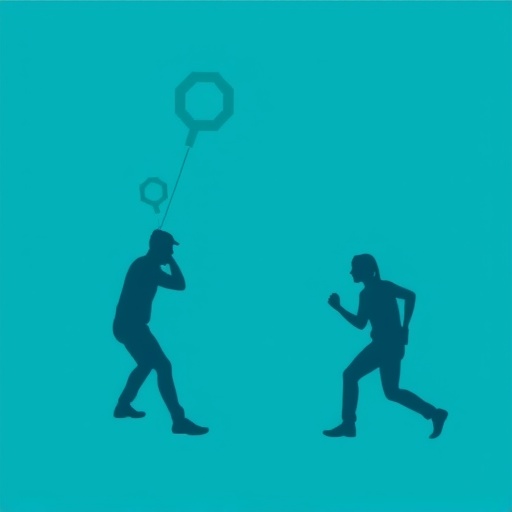In recent years, physiotherapy has emerged as a crucial aspect of healthcare, especially in the context of rehabilitation and recovery from various medical conditions. As the healthcare landscape evolves, there is an increasing necessity to adapt educational frameworks that equip future physiotherapists with the latest competencies required to meet these challenges. A recent qualitative study from Türkiye, conducted by Atalay and Ugrak, serves to explore how health professions education can reshape the physiotherapy process, ultimately aiming to enhance patient outcomes and optimize therapeutic interventions.
The study draws on a robust qualitative methodology, engaging with various stakeholders in the physiotherapy field, including educators, practitioners, and students. By employing in-depth interviews, the researchers were able to uncover nuanced perspectives on the educational strategies currently in use, their effectiveness, and areas requiring improvement. The rich narratives that emerged from these discussions highlight the multi-dimensional challenges faced in physiotherapy education and practice today.
Integral to the research findings is the acknowledgement of a gap between theoretical knowledge and practical application within physiotherapy education. Many participants voiced concerns regarding the traditional, often rigid curriculums that fail to incorporate real-world scenarios or evidence-based practices. This disconnect becomes particularly apparent when students transition from classroom to clinical settings, where they encounter complexities that were not adequately addressed during their education. Such insights underscore the necessity for educational institutions to revamp their programs to ensure that learners are well-prepared for the realities of the profession.
Furthermore, the study emphasizes the importance of interdisciplinary collaboration in developing a comprehensive educational approach. By fostering partnerships between physiotherapy educators and other health professionals, the curriculum can be enriched with diverse insights and alternative practices that ultimately benefit students. This tabling of collaborative efforts can bolster understanding of patient-centered care and encourage a holistic approach to health, which is ever more pertinent in today’s collaborative healthcare environments.
Another significant focus of the study is the integration of technology in physiotherapy education. As the digital landscape evolves, so too do the tools available to practitioners. By incorporating simulators, online platforms, and tele-rehabilitation into training programs, educators can provide students with advanced skills that are directly applicable to contemporary practice. Participants in the study expressed optimism towards embracing digital resources, which have the potential to enhance both learning experiences and patient interactions.
Equally noteworthy is the suggestion that ongoing professional development and continuous education should be woven into the fabric of physiotherapy training. As healthcare policies and treatment methodologies evolve, practitioners must engage in lifelong learning to ensure they remain current with industry standards. The study advocates for a culture that encourages continuous professional development, which may include workshops, conferences, and mentorship programs as essential components of physiotherapy education.
The insights gleaned from this research do not merely highlight the shortcomings of existing educational frameworks but also pave the way for innovative solutions and strategies that could redefine physiotherapy education in Türkiye and beyond. By embedding qualitative research findings into curriculum development, educational institutions can foster an environment that values critical thinking, adaptability, and evidence-based practices.
Another dimension brought to light through this qualitative study is the role of mentorship in the educational pathway of physiotherapy students. Many participants highlighted the importance of mentorship programs, not just for skill development but for instilling the values and ethical considerations vital to the profession. Mentors can provide invaluable guidance to students, complementing theoretical knowledge with practical insights that enhance learning and professional identity formation.
Moreover, the research identifies the need for a significant focus on communication skills within physiotherapy curricula. The ability to effectively communicate with patients is essential in the delivery of care; thus, training programs must prioritize this aspect of education. The study advocates for the integration of communication workshops and role-playing scenarios, reinforcing the idea that skilled communicators are often viewed as more competent practitioners by both their peers and patients.
Furthermore, the qualitative study highlights the necessity of feedback mechanisms in the educational process. Regular and constructive feedback not only aids in the student’s growth but also facilitates a culture of openness and continuous improvement. The research participants emphasized that the presence of a supportive feedback system empowers students to take ownership of their learning and better prepares them for the realities of clinical practice.
In examining the implications of these findings, one must consider the extent to which these educational reforms can influence patient care outcomes. By cultivating a new generation of physiotherapists who are well-equipped with both knowledge and skills aligned with contemporary practice, the ultimate beneficiaries will be the patients themselves, who stand to receive better, more targeted care.
To conclude, the qualitative study by Atalay and Ugrak serves as a clarion call for revisiting and revitalizing physiotherapy education through health professions education. The insights shared by participants reveal glaring gaps while simultaneously affording opportunities for substantial improvements. As educational institutions heed these findings, the physiotherapy workforce can emerge better equipped to navigate the complexities of modern healthcare—optimistic about their roles as both practitioners and lifelong learners.
This pivotal research not only adds to the growing discourse on the need for educational reform in physiotherapy but also provides a roadmap that can be utilized by institutions around the globe. It encapsulates the importance of aligning education with the realities of practice to foster a healthcare workforce that is responsive, adaptive, and ultimately, capable of delivering exceptional patient care.
Subject of Research: Physiotherapy education reform and its impact on practice in Türkiye.
Article Title: Shaping the physiotherapy process through health professions education: a qualitative study from Türkiye.
Article References:
Atalay, G., Ugrak, U. Shaping the physiotherapy process through health professions education: a qualitative study from Türkiye.
BMC Med Educ 25, 1544 (2025). https://doi.org/10.1186/s12909-025-08104-8
Image Credits: AI Generated
DOI: https://doi.org/10.1186/s12909-025-08104-8
Keywords: Physiotherapy education, health professions education, qualitative study, Türkiye, professional development, interdisciplinary collaboration.




